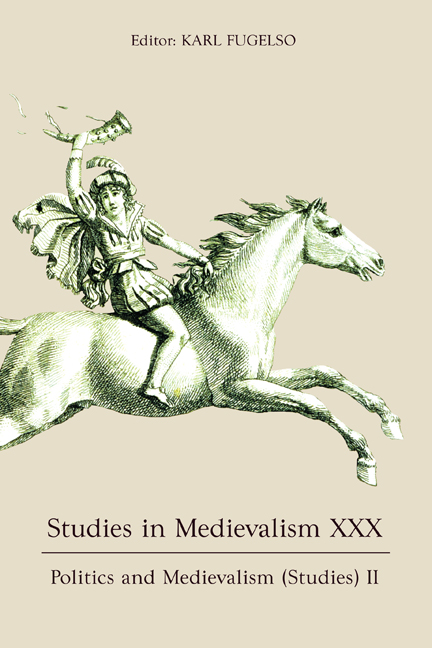George R. R. Martin and the Virgin Martyr: Misogyno-feminism and the (Ab)uses of the Past
Published online by Cambridge University Press: 24 March 2021
Summary
In a 2015 interview with Entertainment Weekly, George R. R. Martin defended the extreme violence against women depicted in his bestselling series, Song of Ice and Fire, on the grounds that his novels “reflect a patriarchal society based on the Middle Ages.” “The Middle Ages were not a time of sexual egalitarianism,” he explained, before iterating, “I wanted my books to be strongly grounded in history and to show what medieval society was like.” Portraying an “egalitarian society,” he continued, would be rather like portraying flying pigs or people walking on their hands. Martin's claim that his representation of sexualized violence is merely being true to “the time” has been reiterated by the actors and producers of A Game of Thrones, the HBO adaptation of A Song of Ice and Fire, and it has been accepted by myriad fans and challenged by some critics.
I am not interested in examining here whether Martin's novels (dragons and all) are indeed faithful representations of medieval life, nor in assessing the sincerity of his claim that a thirst for accuracy compelled him to load them with sex, violence, and sexual violence; rather, I want to explore something that is truly medieval about Martin's work, namely, the technique of situating questionable elements in a remote past in order to license the reader at once to savor and deplore them. As I will show, the popular literature of the Middle Ages provides parallel examples of sexualized violence set in a remote, barbarian past; in fact, such violence is at the heart of one of the most popular medieval genres of all, the virgin-martyr legend.
To be clear, I do not claim that Martin was directly inspired by the virgin-martyr legend, a genre he probably never heard of. His heroines, moreover, are neither virginal nor saintly. Rather, I argue only that Martin and the producers of HBO's adaptation, Game of Thrones, face a similar cultural situation and respond in a similar way as they, like the medieval hagiographers, seek to appeal to a broad and conflicted audience. Specifically, I will argue that Martin's literary universe and that of the medieval genre are remarkably similar in their representation of violence against women, as well as in their quite different representation of violence against men.
- Type
- Chapter
- Information
- Studies in Medievalism XXXPolitics and Medievalism (Studies) II, pp. 187 - 202Publisher: Boydell & BrewerPrint publication year: 2021

